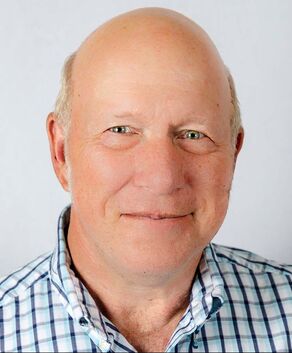 I promised back in the first installation of this blog to discuss what it means to be an evangelical (a title I do not claim for myself) and, perhaps, to consider how we ever got so confused about it. Here goes. Evangelicals are not a church or a church movement – rather, an 18th century adjustment in the way Christians in general saw themselves. About 1740, Christians, suddenly, as these things go, found themselves in a new situation. Christianity was now a firmly linked trans-Atlantic community exceeding former tribal, national, and philosophical borders. In the prior century if you were, say, a German and not a Catholic – you were Lutheran – like all non-Catholic Germans. If you were British and not a Catholic you were Episcopalian or, a little later, Methodist. This was an English thing. If you lived in Geneva and were not Calvinist, mean old Jean wouldn’t let you stay! But the expansion of European protestants to America changed things. Capitalism and Humanism took root and grew. Slavery was being seriously questioned. The world was all at once, different – both larger and smaller. Into this period (The first Great Awakening) walked the great revivalists George Whitfield and Jonathan Edwards, preaching a ‘good news’ (evangelion) that existed above and beyond all national and denominational barriers: a good news shared by German Lutherans, English Methodists, and American Puritans alike – those pesky Swiss too! Never mind all that other stuff written up in handbooks, bylaws and catechisms – there is a core good news – an evangelical truth - that defines all Christians. This new evangelicalism was strengthened in the second Great Awakening (1790 to 1830 or so – seems like we fell back asleep pretty quick!), becoming the dominant expression of American Christianity which had now moved as far west overland as it did over sea to get here in the first place! But while Methodism or Presbyterianism had official headquarters, sanctioned literature, designated spokesmen, etc., evangelicalism was a more free-range operation carried west by circuit riders who got considerably ahead of denominational organization. Perhaps because it was so generalized and thus hard to stomp on, evangelicalism emerged from the Civil War in better shape than the denominations from which it arose: a strength still present in the early to mid- 1900s by which time World Wars and a Great Depression caused a lot of questioning about God’s nature and even existence. Evangelicals felt they had the best answers to such questions but, lacking formal organization, the weakest voice. Enter the National Association of Evangelicals – circa 1942 – born in a conference of 147 Christian leaders from 40+ American denominations. Spoiler alert – organization both strengthens and stifles! And now we’re ready for the part where the understanding of evangelicalism gets really messed up! In 1976 Jimmy Carter became the first ‘born again evangelical’ to be elected President of the United States. Newsweek declared 1976 – the year of the evangelical! But – there were other evangelicals (remember that free-range thing) accepting the same core good news as Carter but living far enough to the political right of the erstwhile peanut farmer turned politician as to need a separate philosophical zip code. These evangelicals birthed the Christian Coalition, the Moral Majority et al and became known collectively as ‘The Religious Right’ – as opposed to the original evangelical coalition that formed behind Carter. The Carter evangelicals didn’t go away – but no organizational genius stepped up to help them compete with their right leaning brethren. This is one of the reasons the number of evangelicals is so hard to pin down. Are they 7% of the American population? Or 50%? Both things have been asserted! In 1967 were there 10 million of them? 20 million? 50 million? Well, it depends on which ones you count – which depends a lot on who does the counting! To a preacher the definition is theological or doctrinal. To a sociologist the definition is demographic. But to a politician at any time after 1980 the definition is a voting block or, to put a finer point on it – white Christian Republicans. Herein lies the trouble. Maybe the first political pollster in line really meant to understand the forces that caused a certain segment of the population to turn out for a certain candidate in a certain election. But after that evangelicalism became no more (to politicians) than one more mailing list for use in the endless process of hitting people up for money and votes. This in an era where political voices get a lot more airtime than the preacher or the sociologist. To wit: the most commonly accepted non-political definition of evangelicalism was put forth by historian/sociologist David Bebbington in 1989. Evangelicals:
A moments thought will tell you that the current politically driven definition of Evangelicals is far too narrow – even when recast as ‘white Evangelicals’. Funny how politics desires to take a movement created to ignore forced boundaries and shoehorn it into a narrower and narrower space. Now, if this hasn’t bored your socks off, you might look sometime down the road for another post explaining why I do not consider myself an evangelical. If this did bore your socks off, put them back on! Spring is still some days away!
2 Comments
Holly k
3/18/2020 04:43:45 am
Love ur blogs ..u sum stuff up really good...thank u! Keep it up. I def will keep up. When I remember to turn my phone on
Reply
Leave a Reply. |
AuthorPastor and Author Terry Bailey, Senior Pastor of Indian Run Christian Church Archives
December 2022
Categories |

 RSS Feed
RSS Feed
